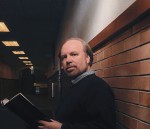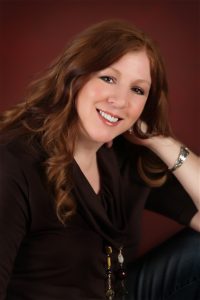For the FIRST TIME, Midwest Writers Workshop is offering a Part I intensive session on WRITING THE BIOGRAPHY.
So, who did we get to teach it? None other than the award-winning Dr. Michael Shelden! (Yes, he was nominated for a Pulitzer Prize for Biography.)
 In addition to teaching “Writing the Biography,” Michael will teach several sessions throughout the weekend of our July 23-25 workshop. Committee member Cathy Shouse caught up with Michael for a Q&A after he landed back home in Indiana from his six-city tour to Chicago, San Diego, New York City, Philadelphia, and San Francisco, as a 2015 Drue Heinz Lecturer for the Royal Oak Foundation in affiliation with the National Trust of England.
In addition to teaching “Writing the Biography,” Michael will teach several sessions throughout the weekend of our July 23-25 workshop. Committee member Cathy Shouse caught up with Michael for a Q&A after he landed back home in Indiana from his six-city tour to Chicago, San Diego, New York City, Philadelphia, and San Francisco, as a 2015 Drue Heinz Lecturer for the Royal Oak Foundation in affiliation with the National Trust of England.
While on tour, Michael lectured about his latest book,Young Titan: The Making of Winston Churchill,published by Simon &, Schuster, New York and London, 2013. (For more details about the tour, click here.) This month he also gave a presentation, “Moments of Being: The New Art of Biography,” at the College of Liberal Arts at Purdue in West Lafayette.
Young Titan has garnered rave reviews from numerous sources:
“It’s all here–the boy wonder, adventurer, romantic, orator and eloquent man in the arena. I didn’t want it to end.” ~ Tom Brokaw on Michael Shelden’s book Young Titan.
“Entertaining and erudite . . .Shelden is full of sharp literary insights about Churchill, as one would expect from a biographer of his rank.” ~ The Wall Street Journal
If you want to improve your nonfiction skills, you should register for Michael’s intensive session! Here’s what he had to say about his upcoming presentations at Midwest Writers Workshop in July.
MWW: Which book would you recommend attendees read to understand the techniques you’ll discuss in your intensive session? Or would all of them apply equally?
MS: Young Titan: The Making of Winston Churchill (Simon & Schuster, 2013) and Mark Twain: Man in White (Random House, 2010)
MWW: One of my favorite biographies is Girl Sleuth: Nancy Drew and the Women Who Created Her by Melanie Rehak. Do you have a favorite biography, or more than one, and what do you like about it?
MS: Hampton Sides, Hellhound on His Trail, is a suspenseful portrait of Martin Luther King and James Earl Ray in the period when the hate-filled assassin was stalking the great civil rights champion.
MWW: Is there a common pitfall(s) you see when you read biographies and how will your session help to avoid those?
MS: The most common mistake in biographies is to follow chronology too closely. The writer must know when to skip over boring details for the sake of creating a streamlined narrative.
MWW: Please provide some details about how your intensive will be structured. Will attendees be writing during the session?
MS: I will discuss how to find material for a good biographical narrative, how to structure it, and how to make it come to life with forceful writing. We can try a few experiments by writing short samples, but mostly I will try to highlight the effective methods I’ve learned over the years.
MWW: If someone has not begun a biography and maybe doesn’t have a subject chosen, how will this session help (or should they have a subject already?) and would you rate your class as aiming toward a specific level of writer?
MS: I’m often asked how I choose the subjects for my biographies, and I will explain this process in the session, but it’s highly personal and can’t be applied to most writers. You don’t write a biography in the abstract. The subject has to come first, and it has to be one that engages the writer fully at every level. The nature of the subject will largely determine how the story will be told.
MWW: Will some of the techniques you plan to discuss apply to fiction writers who are working on characters, or should attendees be strictly working with nonfiction?
MS: Biographers may use dialogue, setting, and story in much the same way that novelists do, but the main difference is that we can’t make stuff up. Most of what I will have to say will apply to writers of nonfiction.
MWW: Are there some ways to prepare for your class?
MS: Read a good biography and think at every turn about how it was made.
*****
Michael’s Part II sessions include the Thursday evening keynote, Finding Subjects for Nonfiction, and The Art of Research.
REGISTER TODAY!



